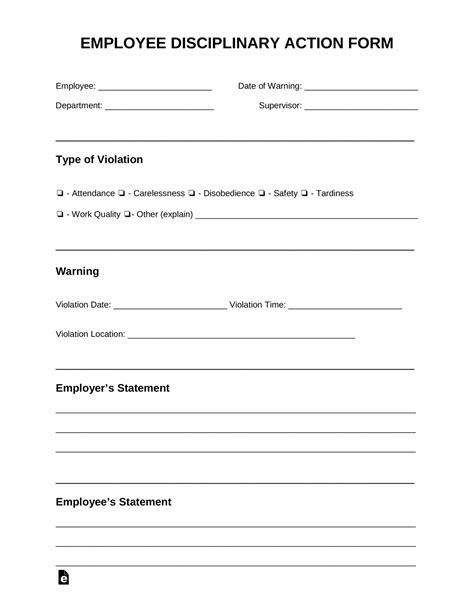Church discipline. Just hearing those words can stir a mix of emotions: apprehension, trepidation, and perhaps a deep sense of responsibility. It’s a biblical mandate, yes, but it’s also one of the most challenging and heart-wrenching aspects of church leadership. I remember the first time our leadership team faced a formal church discipline case; the weight of responsibility was immense, not just for the individual involved, but for the health and witness of the entire congregation. Having clear, concise documentation would have eased so much anxiety and ensured we followed a consistent, biblical process.
You’re here because you understand the gravity of this task. You’re looking for practical tools—specifically, free church discipline forms printable—that can help you navigate these sensitive waters with wisdom, compassion, and biblical integrity. This isn't just about paperwork; it's about upholding the truth of God's Word, fostering an environment of accountability, and ultimately, pursuing the restoration of a fellow believer. This guide is designed to offer you not just forms, but a framework for approaching church discipline with grace and a clear conscience.
Essential Free Church Discipline Forms for Initial Outreach & Private Admonition
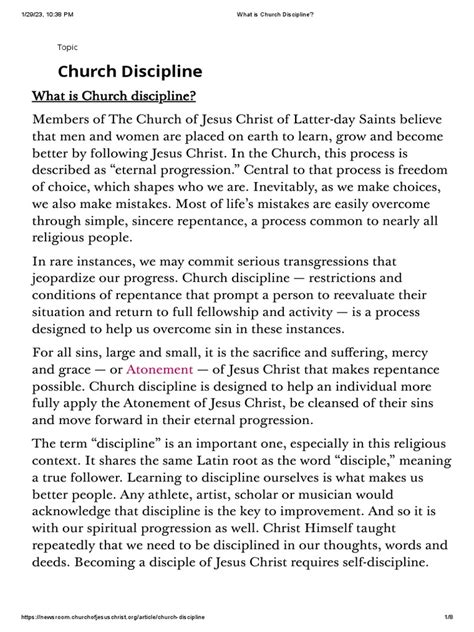
The journey of church discipline, as outlined in Matthew 18:15-16, ideally begins with private, loving confrontation. This foundational step is crucial for fostering an atmosphere of care and providing an opportunity for repentance without public exposure. Documentation at this stage isn't about legalism, but about clarity, consistency, and a shared understanding of the concerns.
- Initial Concern Documentation Form: This form helps leaders privately record the specific behavior or sin observed, the biblical basis for concern, and the date/time. It’s for internal use to track initial steps.
- *Example Content:* "Date: [Date]. Observed behavior: [Specific action/pattern]. Scriptural concern: [Relevant verse, e.g., 1 Corinthians 6:9-10]. Discussed with: [Leader's name]."
- Private Admonition Meeting Summary: After the initial meeting with the individual, this form summarizes what was discussed, the individual's response, and any agreed-upon next steps. It serves as a gentle reminder of the conversation.
- *Example Content:* "Meeting Date: [Date]. Participants: [Leader's Name], [Individual's Name]. Key Discussion Points: [Summary of the sin and biblical counsel]. Individual's Response: [e.g., 'Expressed understanding,' 'Denied wrongdoing,' 'Agreed to seek counseling']. Next Steps: [e.g., 'Follow-up in 2 weeks,' 'Prayer and reflection period']."
- *Personal Insight:* I've found that having this simple summary, even if not signed, is invaluable. It helps ensure everyone remembers the details of the conversation, especially when emotions are high.
Formal Counseling & Accountability Process: Free Printable Forms
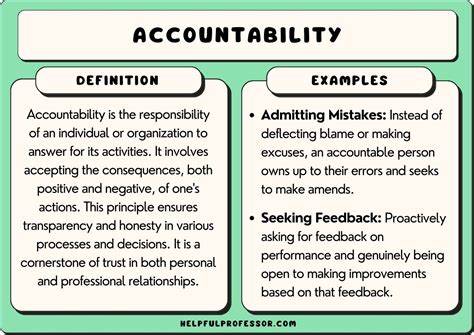
If private admonition doesn't lead to repentance, the next step often involves a more formal process, perhaps with one or two additional witnesses (Matthew 18:16). These forms help structure these more serious conversations, ensuring due process and clear communication.
- Formal Meeting Notification: A document to formally invite the individual to a meeting, clearly stating the purpose, who will be present, and the biblical grounds for the discussion.
- *Example Content:* "Dear [Individual's Name], This letter is to formally invite you to a meeting with [Names of Leaders/Witnesses] on [Date] at [Time] regarding [Brief, specific concern, e.g., 'unresolved conflict with a church member,' 'pattern of unrepentant sin']. Our desire is for your spiritual well-being and restoration, in accordance with Matthew 18:16. Please confirm your attendance."
- Accountability Agreement / Covenant Form: If repentance occurs, this form outlines specific commitments made by the individual, steps for restoration, and the church's commitment to support them. It’s a powerful tool for mutual understanding and a pathway to reconciliation.
- *Example Content:* "I, [Individual's Name], acknowledge the sin of [specific sin] and express sincere repentance. I commit to [Specific action steps, e.g., 'attending weekly counseling,' 'making restitution,' 'abstaining from certain activities']. The church, through its leaders, commits to providing [e.g., 'spiritual support,' 'accountability partner'] and prayer. This agreement will be reviewed on [Date]."
- Progress Report / Follow-Up Form: Used to document ongoing conversations, progress, or lack thereof, following an accountability agreement. Critical for long-term support and monitoring.
- *Example Content:* "Follow-up Date: [Date]. Individual's Progress: [e.g., 'Consistent attendance at counseling,' 'Struggling with temptation,' 'No visible change']. Church Support Provided: [e.g., 'Weekly check-ins,' 'Prayer']. Next Steps: [e.g., 'Continue current plan,' 'Re-evaluate next steps']."
Communication of Disciplinary Action: When Difficult Decisions are Made
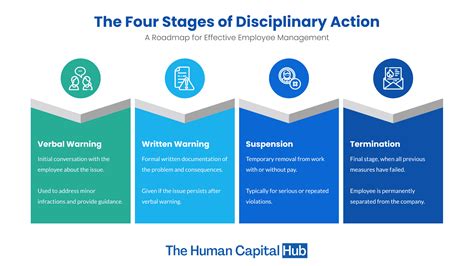
When all other efforts have failed and persistent, unrepentant sin threatens the integrity of the church, formal disciplinary action may be necessary. These are the hardest steps, and the forms here are paramount for legal clarity, consistent application of policy, and protecting the church's witness.
- Formal Disciplinary Action Notification (Step 3/4): A crucial document outlining the decision to remove an individual from membership (or other privileges), the reasons, the biblical basis, and the process for potential restoration. This must be handled with utmost care and legal review.
- *Example Content:* "Dear [Individual's Name], It is with deep sorrow that we must inform you of the decision by the leadership of [Church Name] to [e.g., 'suspend your membership privileges,' 'remove you from membership'] due to [Specific unrepentant sin/behavior] as outlined in [Church Bylaws Section/Biblical Reference]. This decision comes after [Summary of prior steps taken]. Our prayer remains for your repentance and restoration. This action is effective [Date]."
- Public Notification (When Required by Bylaws/Scripture): A draft statement for the congregation (e.g., for "tell it to the church" in Matthew 18:17), typically read aloud, that is compassionate yet clear, protects privacy, and explains the church's difficult decision without gossip.
- *Example Content (for verbal communication, not for printing and distributing to public):* "Brothers and sisters, it is with heavy hearts that we share that [Individual's Name] has, after repeated attempts at private and small-group reconciliation, chosen to remain unrepentant regarding [general category of sin, e.g., 'a persistent pattern of division,' 'an unconfessed sin']. Therefore, in obedience to Scripture and our church bylaws, they have been removed from membership. We continue to pray for their repentance and restoration, and we ask you to do the same, refraining from gossip and upholding the unity of the Spirit." This is one of those times where the written form is more for *internal leadership reference* than for public distribution.
Restoration & Reconciliation Pathway Forms

The ultimate goal of church discipline is always repentance and restoration. These forms aid in the process of bringing a repentant individual back into fellowship, ensuring genuine change and continued support.
- Restoration Process Agreement: Similar to the accountability agreement, but focused specifically on the steps for full re-integration into the church community.
- *Example Content:* "I, [Individual's Name], having repented of [specific sin] and demonstrated genuine change, desire to be restored to full fellowship. I commit to [e.g., 'serving in a supervised capacity,' 'continued counseling,' 'regular attendance']. The church commits to supporting my restoration and welcoming me back into fellowship. This agreement will be reviewed on [Date]."
- Restoration Progress Check-in: A periodic form to document conversations about the individual's ongoing walk, their re-engagement, and any remaining challenges or triumphs.
- *Example Content:* "Check-in Date: [Date]. Individual's Status: [e.g., 'Actively serving,' 'Attending regularly,' 'Still processing']. Areas of Strength: [e.g., 'Growing in humility']. Areas for Continued Prayer: [e.g., 'Building trust']. Recommended Next Steps: [e.g., 'Gradual re-introduction to ministry,' 'Continue mentorship']."
Comprehensive Record Keeping & Confidentiality: Free Printable Forms for Protection
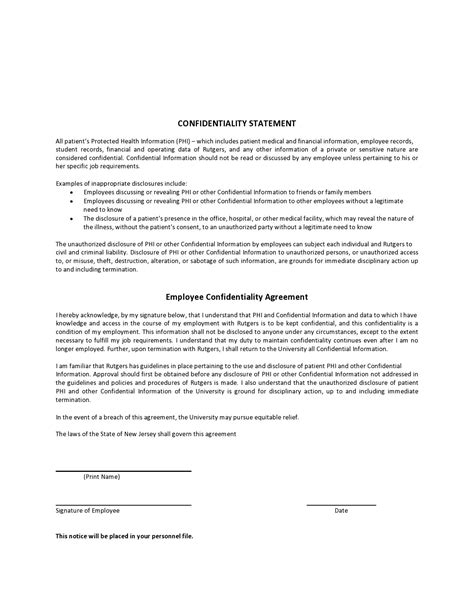
Maintaining meticulous records is vital for accountability, consistency, and protecting the church legally. Confidentiality is paramount throughout the entire process.
- Church Discipline Case Log: A master document to track all cases, including dates of initial concern, meetings, decisions, and outcomes. This helps ensure no case falls through the cracks and provides a comprehensive overview.
- *Example Content:* "Case ID: [Unique ID]. Individual's Name: [Name]. Date Initiated: [Date]. Primary Concern: [Brief description]. Current Status: [e.g., 'Ongoing - Stage 2,' 'Restored,' 'Removed']. Last Action Date: [Date]."
- Confidentiality Agreement for Leaders/Team: A form that all involved leaders and witnesses sign, acknowledging the sensitive nature of the information and committing to maintaining strict confidentiality. This is crucial for building trust and preventing gossip.
- *Example Content:* "I, [Leader's Name], understand that all information pertaining to church discipline cases is highly confidential. I commit to keeping all discussions, documentation, and personal details private, only sharing information on a need-to-know basis as authorized by the leadership, and to refrain from gossip or speculation outside of official processes. I understand that breach of this agreement may result in disciplinary action against myself." In my experience, emphasizing this commitment verbally and in writing at the outset of any sensitive process is incredibly important.
Tips for Personalizing Your Approach to Church Discipline (and Using These Forms Effectively)

Forms provide structure, but the heart of church discipline must always be love, compassion, and a fervent desire for the individual's repentance and restoration.
- Prioritize Relationship First: Before any formal process, ensure you’ve genuinely tried to build a relationship with the person. Forms are tools for a process already embedded in care.
- Pray Fervently: Every step of the way, bathe the process in prayer—for the individual, for the leaders, and for the church. This is spiritual warfare, not just administrative.
- Seek Council Wisely: Don't go it alone. Consult with seasoned, godly leaders or denominational resources. For legal questions, always seek professional legal advice tailored to your specific context and jurisdiction.
- Focus on the Behavior, Not the Person: Always address the sin, not shame the individual. Make it clear that God loves them, but hates the sin that separates them from Him and the community.
- Be Patient and Consistent: Restoration is often a journey, not a single event. Be prepared for ongoing support and follow-up. I've found that prioritizing restoration above all else, while still upholding truth, is the most challenging but ultimately most fruitful approach.
Common Pitfalls: What to AVOID When Implementing Church Discipline

Navigating church discipline is fraught with potential missteps. Avoiding these common pitfalls is as important as understanding the proper steps.
- Gossip and Speculation: This is perhaps the most damaging pitfall. Never discuss discipline cases outside the authorized leadership team or approved communication channels. A breach of confidentiality destroys trust and undermines the entire process. Do not, under any circumstances, allow rumors or personal opinions to dictate or distort the process.
- Lack of Due Process: Failing to follow biblical principles (Matthew 18:15-17) or your church's established bylaws can lead to accusations of unfairness, legal challenges, and deep division within the church. Every step needs clear documentation and adherence to process.
- Acting Out of Anger or Personal Bias: Discipline must be rooted in love, truth, and a desire for restoration, not personal offense or vendetta. Check your own heart motives rigorously.
- Ignoring Legal Counsel (When Applicable): Especially in cases that involve potential legal ramifications (e.g., abuse allegations, financial misconduct), consult with an attorney specializing in church law. Ignoring this can expose the church to significant liability.
- Being Hasty or Too Lenient: Rushing through the process can prevent genuine repentance. Conversely, being too lenient with persistent, unrepentant sin can compromise the church's witness and spiritual health.
- Neglecting Restoration: The goal isn't just to remove sin, but to restore the sinner. If your process doesn't clearly articulate a path for repentance and re-entry, it falls short of the biblical mandate.
These free church discipline forms printable are here to serve as your foundation, your guideposts on a path that requires immense wisdom, courage, and grace. They are tools to help your church uphold biblical standards while always extending compassion and the hope of restoration. Take your time, pray diligently, and use these resources to serve your congregation with integrity. Now, go forth and lead with grace—for the health of your church and the glory of God.
